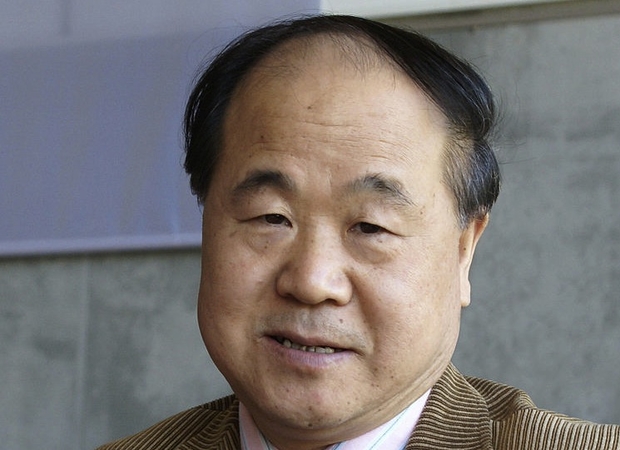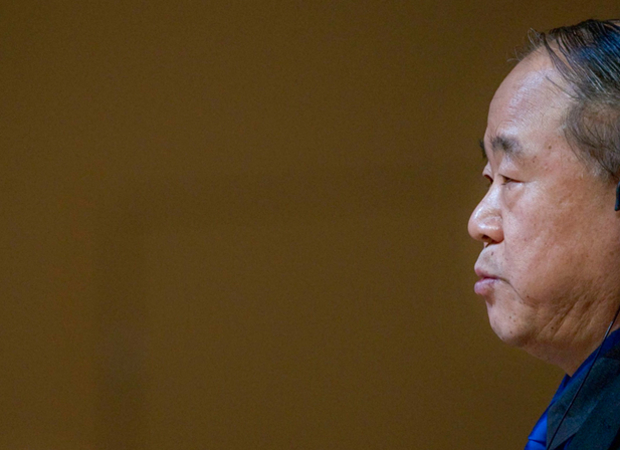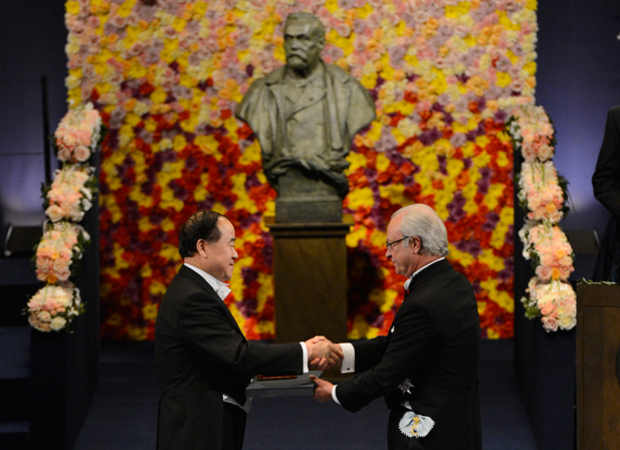
Mo Yan and the Nobel Prize
from Sinica PodcastWhen Chinese author Mo Yan won the Nobel Prize for literature last year, many critics were fast to pounce on his selection,...
Mo Yan Grants First Interview Since Winning Nobel Prize
A look at the highlights from a Der Spiegel interview with Mo, covering Ai Weiwei’s and Liao Yiwu’s criticism of the author, his comments on the Cultural Revolution, and his relationship with the government.
Ordering Off the Menu in China Debates
Mo Yan’s Nobel Prize win last fall led some foreign commentators into an “Ai Weiwei or Zhang Yimou” trap. The former is an artist locked into an antagonistic relationship with the government, the latter a filmmaker who has been choreographing...
A Meaty Tale, Carnivorous and Twisted
Nobel laureate Mo Yan's latest novel to be issued in English, “Pow!,” is a red-toothed fantasia about meat production and meat consumption.
Why Salman Rushdie Should Pause Before Condemning Mo Yan
Mo Yan, China's first Nobel laureate for literature, has been greeted withsome extraordinary hostility in the west. This week ...
In the People’s Liberation Army
Mo Yan, recent recipient of the Nobel Prize in Literature, describes an experience in the People's Liberation Army in the 1970s. This text is excerpted from his part fiction, part memoir Change.

Sheng Keyi on Mo Yan: “Literature Supersedes Politics and Everything Else”
In a recent conversation at the Asia Society, novelist Sheng Keyi said she felt the critism of Mo Yan’s Nobel Prize was unjustified. The...
Yu Jie: Awarding Mo Yan the Nobel Prize Was a “Huge Mistake”
Mo Yan accepted his Nobel Prize for Literature in Stockholm on December 10.
The 57-year-old novelist often writes stories based on memories of his village childhood, and his work and his political views have triggered wide debate. ...
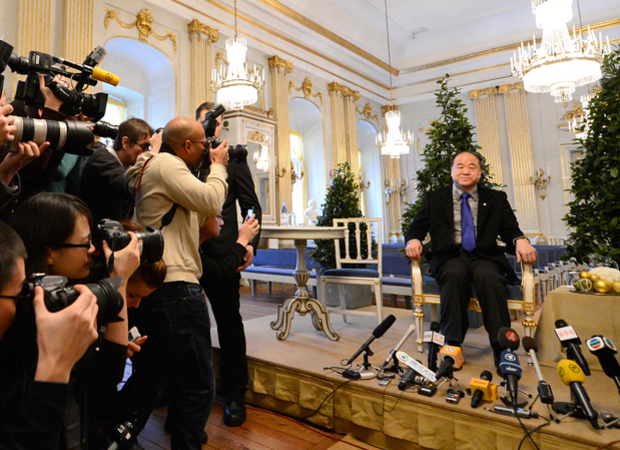
What Mo Yan’s Detractors Get Wrong
When Chinese novelist Mo Yan accepted the Nobel Prize in Literature earlier this week, the relationship between literature and politics attracted much attention. The...
Mo Yan and the Hazards of Hollow Words
In Chinese, there are an impressive number of ways to describe saying nothing at all. When a person is determined to speak at length but not in depth, he can embark on a long jog of feihua—literally, wasted words—or perhaps pass the time at the...
Perry Link: Does This Writer Deserve the Prize?
On October 11 Peter Englund, permanent secretary of the Swedish Academy in Stockholm, announced that the Nobel Prize in Literature for 2012 will go to the fifty-seven-year-old Chinese writer Guan Moye, better known as Mo Yan, a pen name that...
Nobel Literature Winner Skirts Support for Dissident
Nobel literature prize winner Mo Yan dodged requests Thursday to repeat comments supportive of Chinese countryman and jailed dissident Liu Xiaobo, and said censorship may be necessary to stop the dissemination of untrue rumors and insults but...

Does This Writer Deserve the Prize?
from New York Review of BooksOn October 11 Peter Englund, permanent secretary of the Swedish Academy in Stockholm, announced that the Nobel Prize in Literature for 2012 will go to the fifty-seven-year-old Chinese writer Guan Moye, better known as Mo Yan, a pen name that...
China Dismisses Nobel Demands for Liu's Release
China rejected a call from 134 Nobel laureates for the release from prison of dissident 2010 Peace Prize winner Liu Xiaobo.
The Headache of Mo Yan, China’s Nobel Prize Winner in Literature
Mo Yan had a tuxedo made for the December 10 prize gala in Stockholm and is studying the waltz, in case he's invited to dance.
Is Mo Yan a Stooge for the Chinese Government?
Even before the Swedish Academy announced Mo Yan as the 2012 Nobel Literature Prize winner, the Chinese internet was abuzz with discussion of his work and his relationship with the Chinese government.
Mo Yan Calls for Liu Xiaobo’s Release
Mo Yan, the new Nobel laureate who strenuously avoided antagonizing the Communist Party...
Mo Yan Mines a Deep Well
Mo Yan's work recalls a Soviet dissident's quip that in his country “reality and satire are the same.”
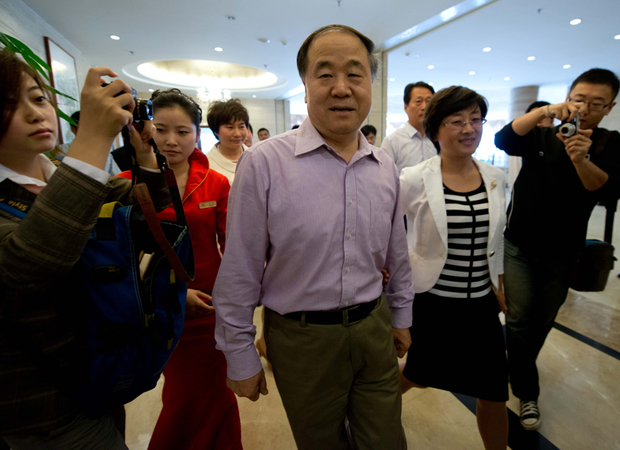
Netizens React to Mo Yan’s Nobel Prize
Upon hearing the news that novelist Mo Yan was awarded the 2012 Nobel Prize in Literature, a flurry of messages about the fifty-seven-year-old Shandong native circulated on weibo, China’s equivalent of Twitter, expressing decidedly mixed opinions...
Mo Yan and China's “Nobel Complex”
In awarding the 2012 Nobel Prize in Literature to Mo Yan, the Swedish Academy has recognized one of China’s best-known writers, and also fulfilled one of the Chinese government’s most enduring pursuits: a...
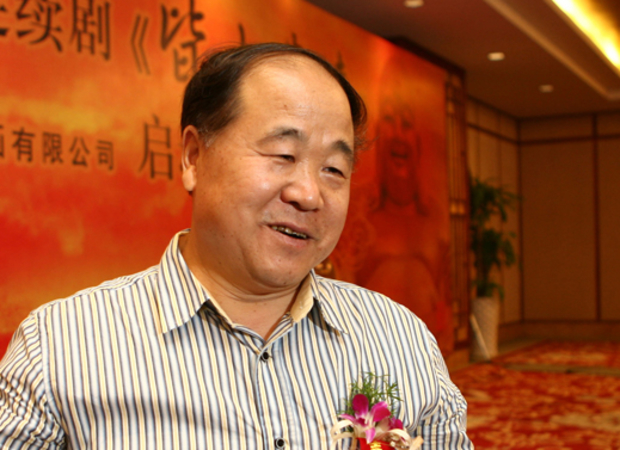
Will Mo Yan’s Nobel Prize Finally Mean Better Book Sales Abroad?
Literature in translation in the United States has wide but shallow roots, making English language stars out of the likes of Gabriel Garcia Márquez and Haruki Murakami, but leaving most of China’s writers struggling to take hold. Now, veteran...
Nobel Prize to Novelist Mo Yan
The Swedish Academy announced on Thursday that it had awarded the 2012 ...
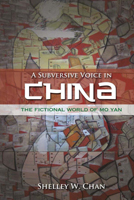
A Subversive Voice in China
Mo Yan, the most prolific writer in present-day China as well as one of its most prominent avant-gardists, is an author whose literary works have enjoyed an enormous readership and have caught much critical attention not only in mainland China, Hong Kong, and Taiwan but also in many other countries around the world. This book provides the most comprehensive exposition of Mo Yan’s fiction in any language. Author Shelley Chan delves into Mo Yan’s entire collection of literary works, considering novels as well as short stories and novellas.






